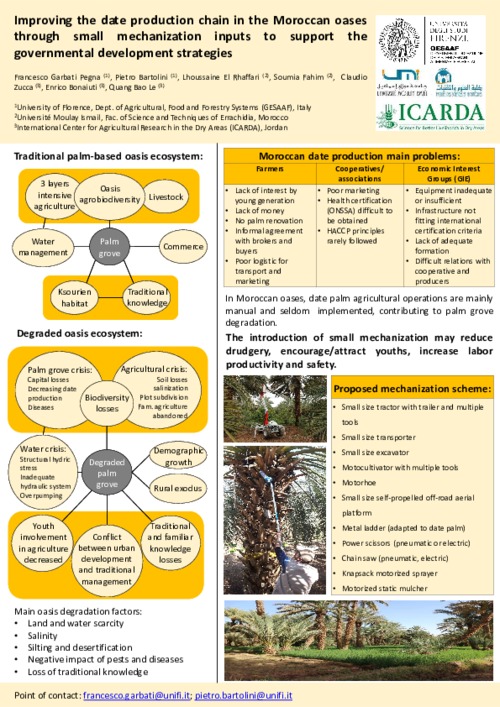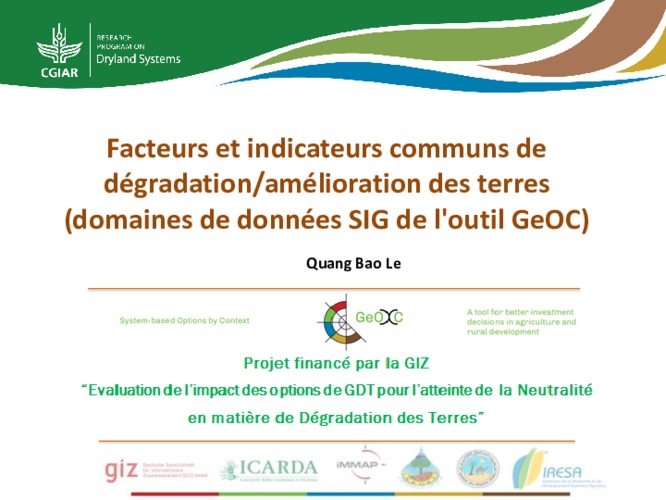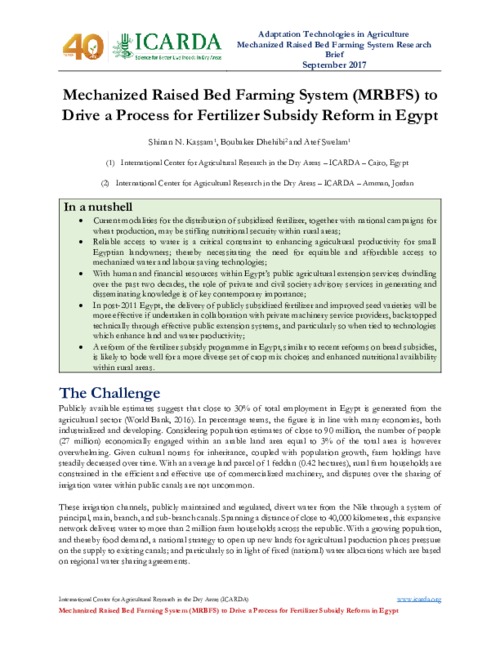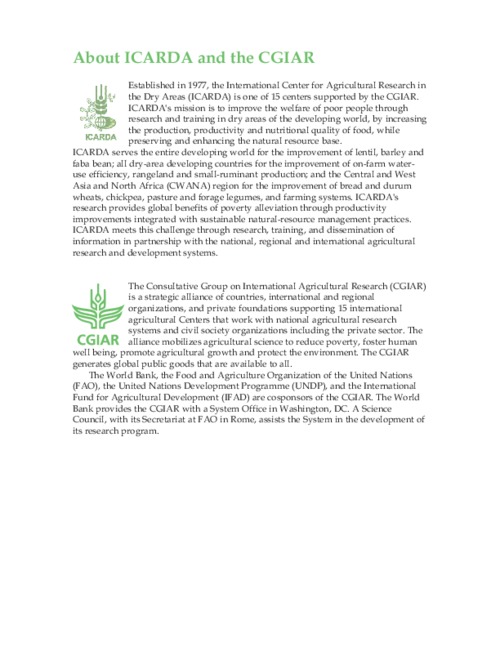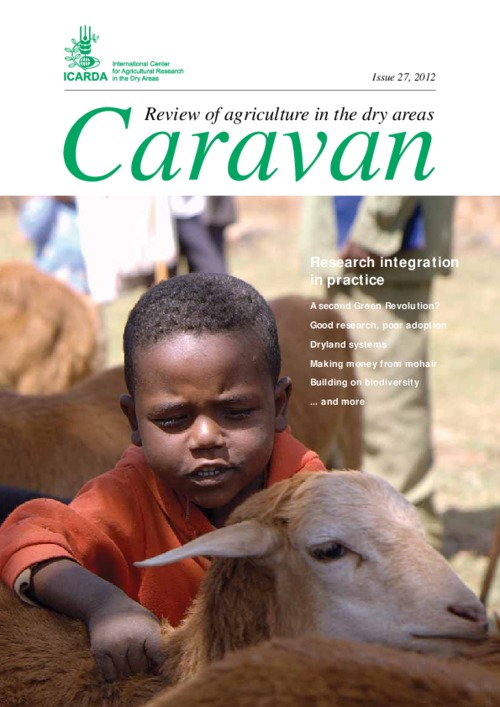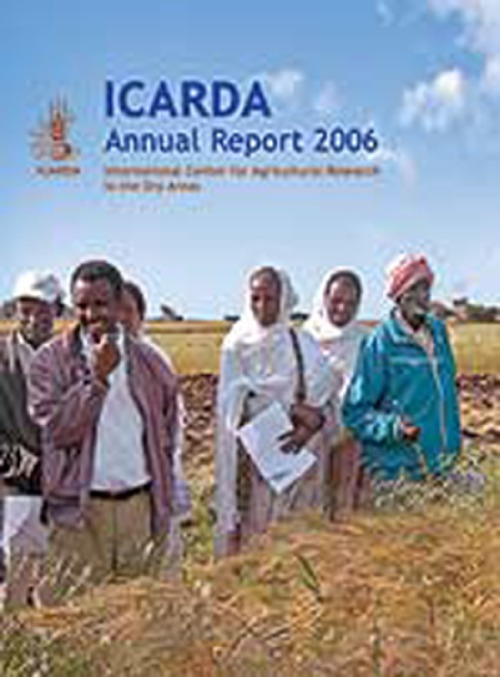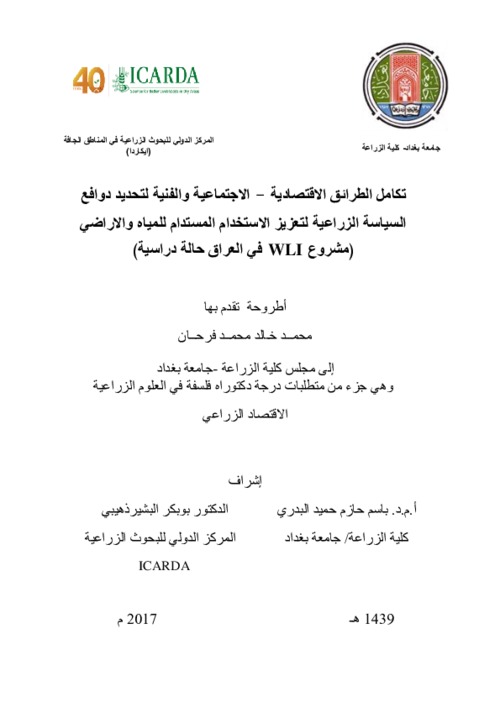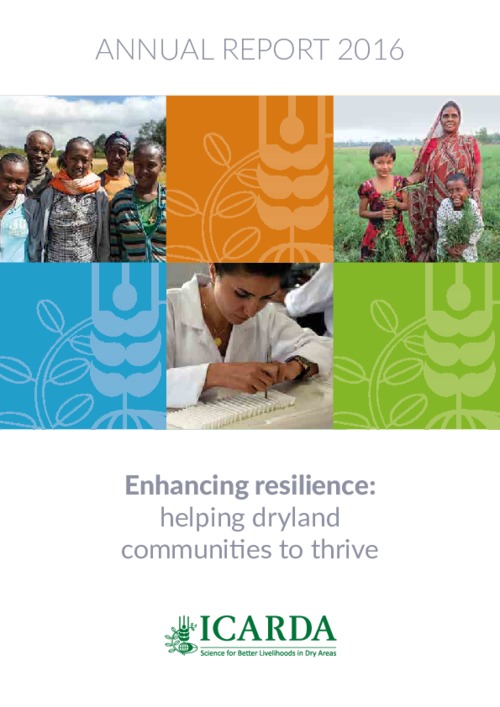Improving the date production chain in the Moroccan oases through small mechanization inputs to support the governmental development strategies
In Moroccan oases, date palm agricultural operations are mainly
manual and seldom implemented, contributing to palm grove
degradation.
The introduction of small mechanization may reduce
drudgery, encourage/attract youths, increase labor
productivity and safety.

